Thanks to a legal loophole, it is not illegal to grow and sell low-THC cannabis in Switzerland. Possession is decriminalised (up to ten grams) and it is legal to send cannabis seeds to the country. Medicinal use of cannabis is permitted when prescribed by a doctor, but the products are hard to obtain and only a few hundred patients receive them.
- Capital
- Bern
- Population
- 8,955,000
- CBD Products
- Legal under 1% THC
- Recreational cannabis
- Illegal
- Medicinal cannabis
- Legal
- Cannabis laws in Switzerland
- Can you possess and use cannabis in Switzerland?
- Can you sell cannabis in Switzerland?
- Can you grow cannabis in Switzerland?
- Is CBD legal in Switzerland?
- Can cannabis seeds be sent to Switzerland?
- Medicinal cannabis in Switzerland
- Industrial hemp in Switzerland
- Switzerland’s political parties and cannabis
- Good to know
- Cannabis history
- Attitudes to cannabis
- What CBD products are available in Switzerland?
- Will cannabis be legalised in the future?
Cannabis laws in Switzerland
Can you possess and use cannabis in Switzerland?
The Swiss government adopts a unique stance with regards to the possession of cannabis. If it contains less than 1% THC (which is responsible for the psychoactive effect, or ‘high’) then it is legal to purchase, possess and consume the substance. However, cannabis containing THC levels higher than 1% is classified as a narcotic. Possession of narcotics, under the Federal Act on Narcotics and Psychotropic Substances: Art. 19, is illegal.
The key difference is the psychoactive effect. The Swiss authorities only recognise the health benefits of CBD (which is not psychoactive, contrary to THC) and that it can “help people to relax and relieves pain and muscle cramp”.
Any adults caught using illegal ‘narcotic’ cannabis can face a fine of CHF 100. If the amount of cannabis they are caught with is below ten grams, then there is usually no penalty, as possessing ten grams or less has been decriminalised.
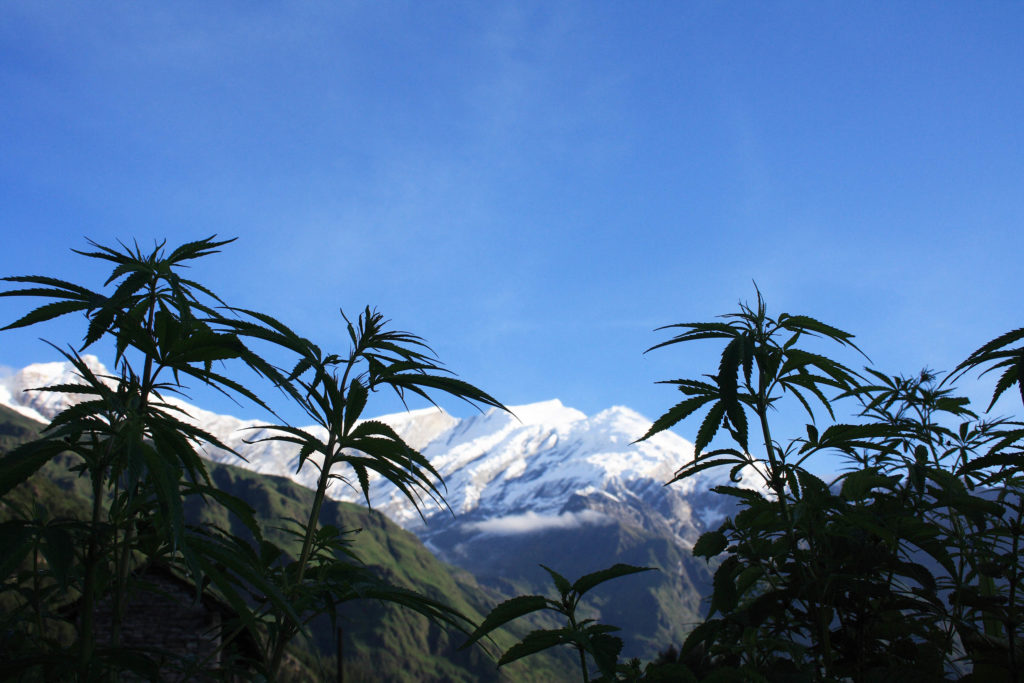
Can you sell cannabis in Switzerland?
In order to sell cannabis products legally, there are certain regulations that must be adhered to. CBD is exempt from the Narcotics Act, as it does not product a ‘high’. However, the government emphasises that this does not mean it can be sold arbitrarily.
Firstly, the CBD goods must be assigned a product category. This will be one of the following:
- Medicinal
- Foodstuffs
- Cosmetics
- Utility articles (e.g. CBD-liquid for e-cigarettes)
- Chemicals
- Tobacco substitutes
Each category has its own legislation, which the supplier must keep to in order to remain within the law.
It is illegal to sell cannabis with a THC level higher than 1%. Punishments are relatively lenient. For small amounts (up to one hundred grams), there is a penalty of one to five ‘daily rates’ (a fine based on the individual’s financial circumstances). Penalties are more severe for bigger sales of cannabis, with prison terms for large-scale sale and supply.
Can you grow cannabis in Switzerland?
The Swiss law is lenient when it comes to cannabis cultivation. Industrial hemp cultivation was legalised in 1995 but is subject to legislation (regarding levels of THC).
It is legal to grow cannabis plants in your home. However, only certain varieties are permitted (those that don’t produce a psychoactive effect) and the THC levels must be below 1%. Due to the low THC levels, it’s also called ‘cannabis light’. Despite the low THC levels, these plants are still marketed as recreational products. This created some confusion in the past, because high-THC plants look and smell the same as low-THC plants.
Is CBD legal in Switzerland?
Any CBD products that contain less than 1% THC may be legally sold in Switzerland, as they are not subject to the Narcotics Act. This is unusually high – many other countries in Europe limit the THC content to 0.2%.
This does not mean that the sale of CBD oil is unregulated. All CBD products must be categorised in accordance with the law and adhere to certain regulations. For example, if categorised as a ‘foodstuff’, it must comply with federal law safety guidelines. However, CBD products are widely available in the country, in supermarkets, kiosks, department stores and specialist shops.
CBD products containing over 1% THC can only be supplied under medical prescription.
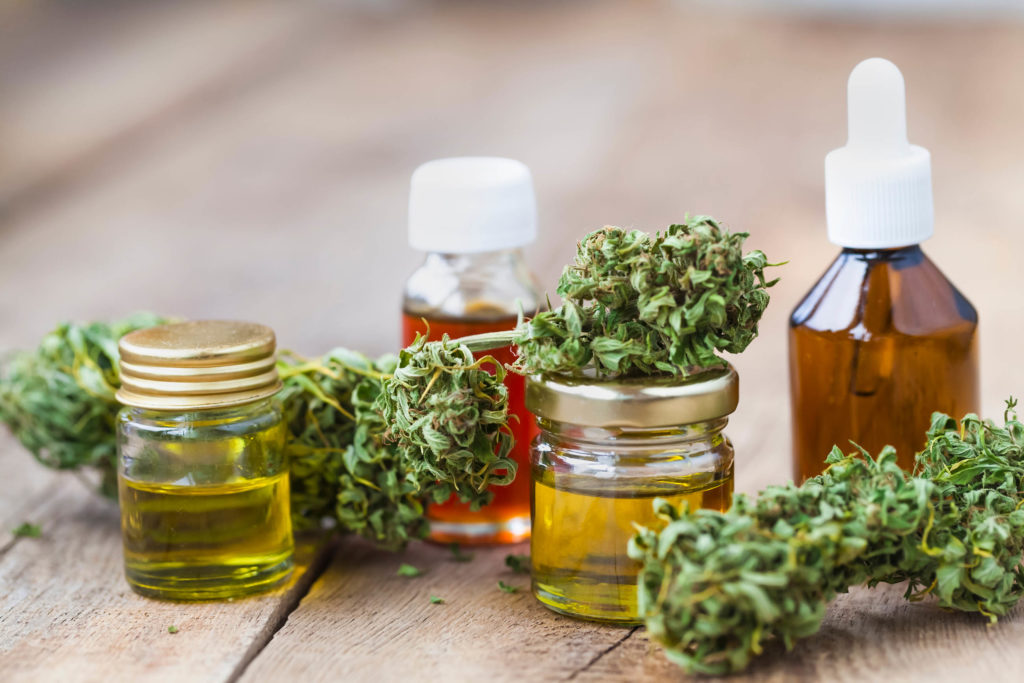
Can cannabis seeds be sent to Switzerland?
It is legal to send cannabis seeds to most countries within Europe. Switzerland is no exception, and you are legally allowed to have seeds mailed to your address. In accordance with the 2012 Concordat Latin sur la Culture et le Commerce du Chanvre (Latin Concordat on Hemp Culture and Trading), residents of seven cantons (such as Geneva and Basel) may grow up to four hemp plants from cannabis seeds, for personal use only.
Medicinal cannabis in Switzerland
Medicinal consumption of cannabis is legal in Switzerland. It can only be accessed via a prescription which must be obtained from a GP. Additionally, patients must have a grant from the Federal Office of Public Health (BAG). The only product that is currently authorised for medicinal purposes is Sativex, which can be prescribed to patients; but this is only used in cases of spasticity (e.g. MS or paraplegia). Exceptions can be made if a GP requests a specific product from the BAG.
Doctors must apply to the BAG for permission to issue prescriptions. Cultivation for medicinal purposes is also legal, provided the facility in question has a BAG.
Licenses are granted for the following conditions:
It is not easy to obtain medicinal cannabis, and there is no official documentation outlining its correct application and treatment. As a result, there are only a few hundred registered medicinal cannabis users in Switzerland.
This may be about to change. The Swiss government have larger-scale studies of medicinal cannabis planned, and the market value of the drug is also starting to be appreciated by the government.
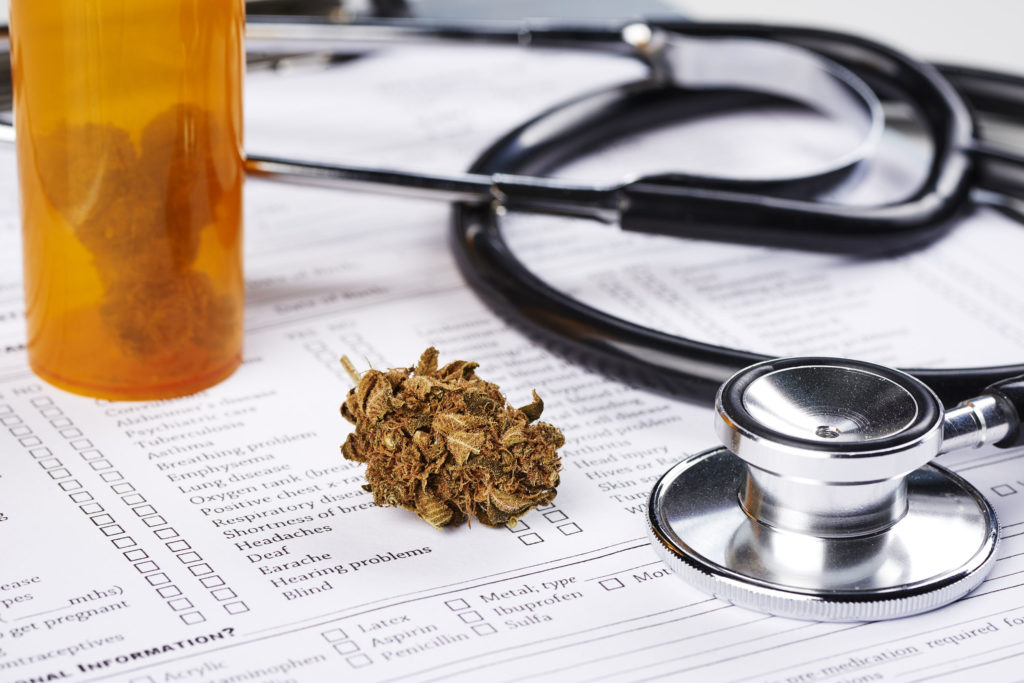
Industrial hemp in Switzerland
Industrial hemp can be legally grown in Switzerland. Anyone wanting to grow hemp must obtain a valid licence. They must also be prepared for their product to be tested, to ensure that THC levels are 1% or less.
Switzerland’s industrial hemp market boosts the country’s economy. At the time of writing, the expected revenue generated by industrial hemp in 2018 is €3.8 million.
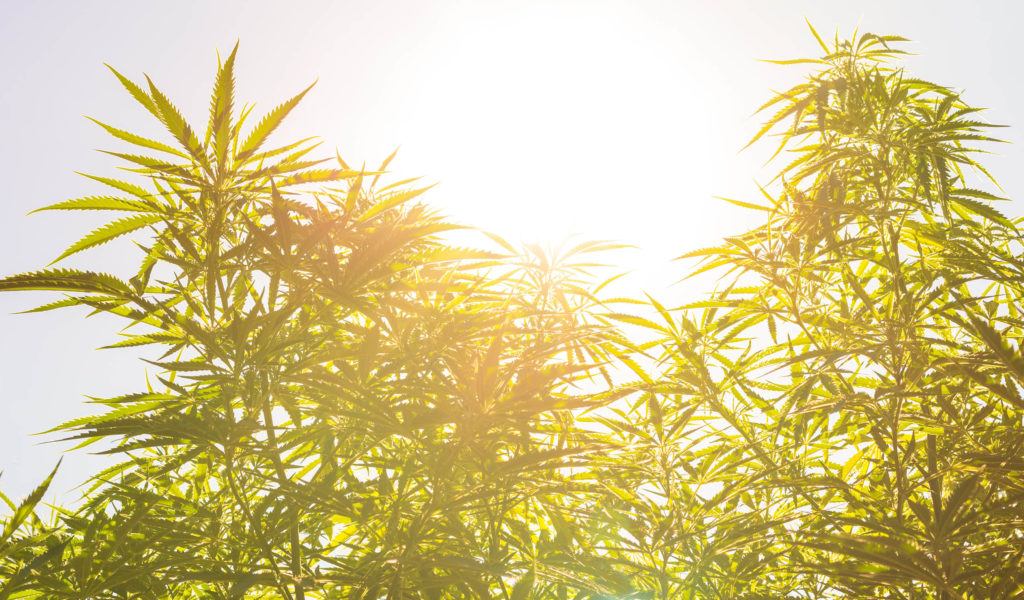
Switzerland’s political parties and cannabis
The legalisation of cannabis has arisen in political debate for many years.
In 2018, the Swiss parliament rejected the motion to permit cannabis use in scientific studies. However, the rejection was based on a slim majority – 96 votes to 93.
The main opposition came from the Swiss People’s Party, who are known for their right-wing, conservative stance. The Christian Democrats also voted against the idea. Both parties believe that, by legalising cannabis in scientific studies, this would lead to legalisation of recreational use in the future.
Other parties have also historically opposed the legalisation of cannabis, such as the Federal Democratic Union (another right-wing party). However, even the Swiss People’s Party recently acknowledged the potential value of cannabis for medicinal purposes.
The Social Democratic Party and the Liberals are both in favour of relaxing the laws regarding cannabis possession and sale.
Good to know
If you are travelling to Switzerland (or are a resident of the country), it is useful to know the following:
- In 2018, a new test was introduced, to help Swiss police officers identify whether or not an individual was consuming an illegal narcotic. This means they can determine if the person in question should be prosecuted.
- A recent report found that 7.3% of adults in Switzerland use cannabis. Adults are defined as those aged from 15 to 64.
- Thanks to Switzerland’s liberal laws on selling CBD, even multinational company Lidl stock hemp flowers in their Swiss stores, as an alternative to rolling tobacco. The country’s Custom Agency recorded a rise in registered retailers from a “handful” in 2015 to over 140 in 2017.
Cannabis history
Based on what historians know about cannabis cultivation in ancient times, it is believed that people have been producing hemp in Switzerland for tens of thousands of years. It is impossible to say for certain, as the ancient hemp fibres discovered were similar in appearance to nettle and flax.
Pollen grain analysis confirms that cannabis was definitely grown in the lowlands of the Swiss Alps 6,500 years ago. In medieval times, Switzerland was an epicentre for hemp trade, along with northern Italy and parts of France and Germany.
Cannabis production continued to be commonplace in Switzerland until the Industrial Revolution, when land was used for farming livestock instead. The 1924 Narcotics Act banned cannabis production. Despite this, a lively industry of cannabis cultivation and use has persisted in Switzerland up to the present day, just as in many other countries in Europe and beyond.
Realising this, the Swiss Federal Offices of Public Health, Police and Agriculture in 1995 decreed that cannabis could be cultivated without special permission providing it was intended for non-drug purposes.
However, the ambiguous wording of the legislation opened a loophole for cultivators of drug cannabis—it stated that all cannabis plants, even hemp, contain THC. In doing so, it made it possible for cannabis cultivators to argue if subject to arrest that their crops were hemp and intended only for non-drug purposes, even if they contained significant cannabinoid concentrations.
At the turn of the millennium, cannabis shops were popular across the country, with shop-owners believing they had discovered a loophole in the law, allowing them to sell it as a ‘wellness product’ in the form of pot-pourri (“Duftseckli”). However, this didn’t last forever. Growland, the best-known hemp business, closed its doors in 2009, due to growing pressure from the government.
Attitudes to cannabis
Swiss attitudes to cannabis are relatively liberal. This can be seen in the presence of CBD products in high street shops, and the growing popularity of cannabis for medicinal use. In fact, cannabis cultivation contributes significantly to the Swiss economy – something that the government acknowledges.
As mentioned above, 7.3% of adults claim that they use cannabis (or have done in the past). Despite this, Switzerland is not one of the highest cannabis-using countries in Europe. A recent study showed that Switzerland ranked 24th in the world; only two places above the UK, where smoking cannabis is illegal.
What CBD products are available in Switzerland?
Cannabis (with THC levels lower than 1%) can legally be sold in the following forms:
- As a raw material (e.g. the flowers and seeds)
- As a medicinal product
- As a foodstuff
- In cosmetics
- As a ‘utility article’
- As a substitute for tobacco
- As a chemical
All forms of CBD are governed by legislation and certain criteria must be met for the products to be legally saleable.
Will cannabis be legalised in the future?
Although the law has decriminalised recreational cannabis use (for amounts less than 10 grams), under the Narcotics Act it is still technically illegal to use it.
This may be about to change. In 2018, the Swiss government put forward the idea of conducting some pilot studies. These would be used to test out different models of regulation. The government stated that the studies would “be limited and restricted to specific areas,” and that “participant numbers would also be limited, and minors would be excluded.” In September 2020, the Council of States (i.e., the Swiss upper house) gave the project a green light, which means that the state-controlled, experimental dispensing of cannabis is now a done deal. The Narcotics Act will be amended accordingly.
This marks a shift in attitude and suggests that legalisation may be an option in the future.
- Disclaimer:While every effort has been made to ensure the accuracy of this article, it is not intended to provide legal advice, as individual situations will differ and should be discussed with an expert and/or lawyer.







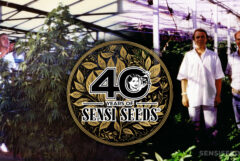



Are Cannabis seeds legal to ship to switzerland even if the End product has more than 1% thc??? Thx in advance
is hhc is legal in swiss?
Good morning Zee,
Thanks for your questions,
Hexahydrocannabinol is a psychoactive compound that can be found in industrial hemp plants, but unfortunately, I cannot give an official response as to it’s legality in Switzerland.
I would recommend contacting Swissmedic, it is Swiss alternatively to the Food and Drugs Administration.
Have a great day!
Mark
Hi )
how can you test cbd to sell It legally in Switzerland ?
Hey Dan,
Thanks for your question.
Unfortunately, I don’t have an answer, but I would recommend to contact SwissMedic.
Perhaps one of our other readers will have some ideas. In the meantime, I hope you continue to enjoy the blog.
Have a great day,
Mark
I’m a 21 year old male who lives in Zurich Switzerland and I suffer from severe chronic back pain. Am I entitled to medical Marajuana?
Good morning Thomas,
Thank you for your comment. We are sorry to hear about your situation. As Sensi Seeds is not a medical agency or practitioner, we cannot give any kind of medical advice other than to consult your registered healthcare professional.
In Switzerland, Medical Cannabis can only be accessed via a prescription which must be obtained from a GP, patients must also have a grant from the Federal Office of Public Health.
You may also find it helpful to contact a support group for medicinal cannabis patients. In the UK there is the United Patients Alliance, and throughout much of the rest of the world there is NORML, who should be able to put you in touch with a group in your area (search United Patients Alliance or NORML followed by your area name).
With best wishes,
Mark
Very misleading article – I suggest you do more research and you will find that Swiss customs intercepts a huge amount of seeds and informs local police who then investigate and have made numerous raids towards the recipients of cannabis seeds in Switzerland.
Hi there,
Thanks for your comment and your feedback. We are continuously checking and updating the articles in our ‘Cannabis In…’ series, and I have passed your comment to the team. The date of the most recent update can be found at the top of the article.
Thanks again, and I hope you continue to enjoy the blog.
With best wishes,
Scarlet
Great news to all cannabis consumers out there. Now we can have cannabis in easy way. Thank you for doing this for us. Very much appreciated.
You don’t get it. This issue just keeps getting bigger and louder and faster as more people and states and nations get involved. This issue is not going away no matter what happens next. Any action raises the issue and gets people talking and familiar with the subject. There are no failures, only steps on the path to freedom.
I had health problems. Fortunately, I live in Switzerland and legal and CBD rich hemp has arrived on the market. I discovered the company Swiss Medical Cannabis that allowed me to treat me through the CBD. Since then, my pain has lessened. For all those suffering from chronic pain try CBD.
When I think of how doctors put us on morphine for pain, it makes no sense why we cannot have cannabis which after all is from plants! Millions suffer from crippling arthritic joints which ruin their lives and if cannabis can alleviate suffering, it is up to nobody on this earth, to stop its use! If they don’t need it they don’t need to use it. For others, if they really need to stop terrible suffering, nobody else should stop the use.
I’m sorry to tell you that Morphine is a component of opium which come from a variety of the Poppy Plant
Please pass the use of cannabis it’s the only solution to help patients with chronic Multiple Sclerosis have cured my daughter Daniela for 15 years until she went into a clinic They will not allow the user of cannabis because of the Swiss laws.
She is now on other lethal substance no good for her making her vomit always drinking coke to take away the queasy stomach. How can we fight back to pass the use of Maraguana like in USA!
this information is very usefull for everyone i have also share it with my friends .
Great piece, looking forward to part 2!
—
Celebrate Cannabis Day, April 20